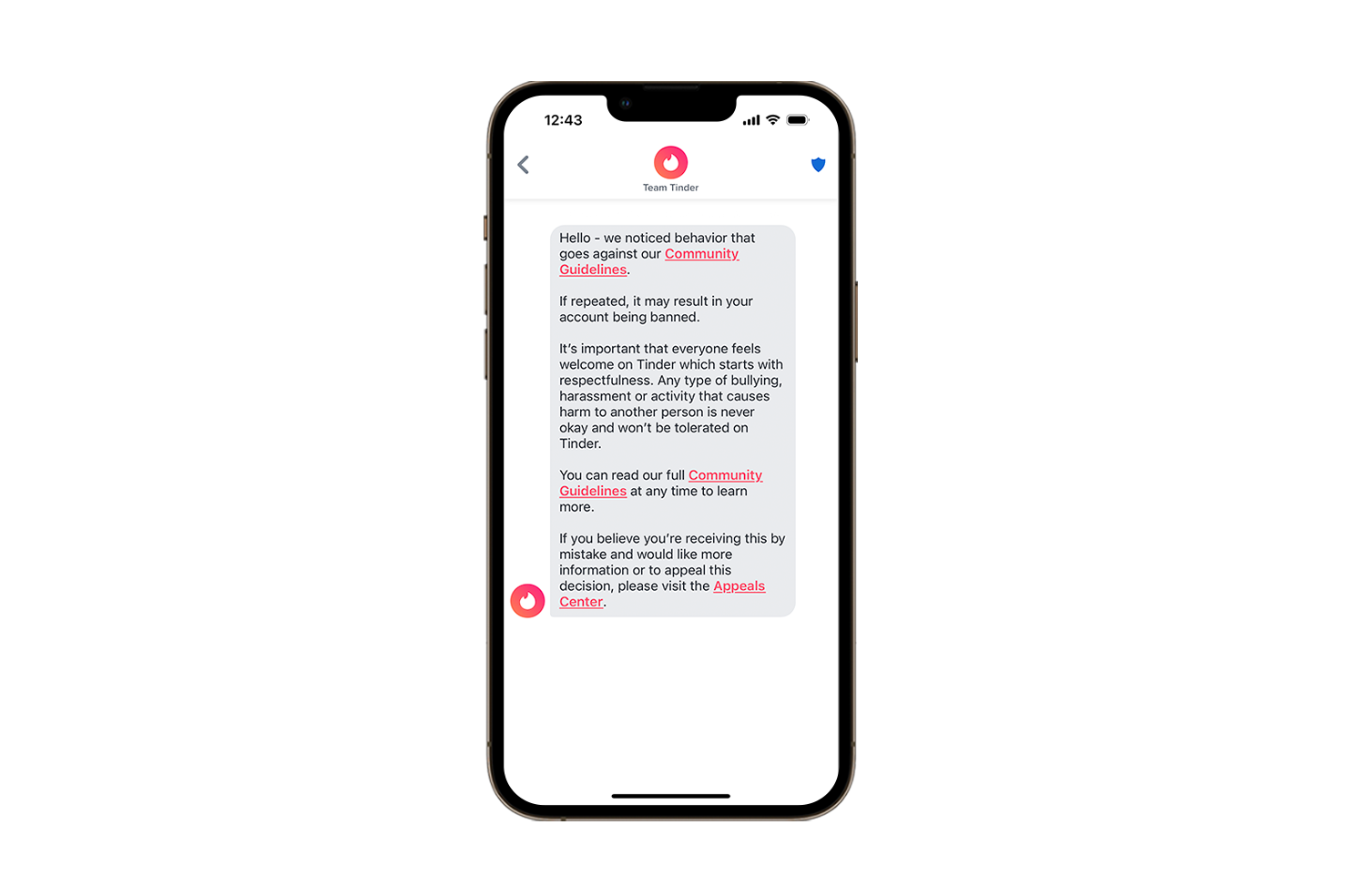Tinder is introducing new user warnings to tell young singles when they’re not being respectful and need to improve their behavior. The updates are rolling out globally in the coming weeks and target the app’s main demographic — users aged 18-25 — who are often just beginning their online dating journey and require additional guidance.
The warnings fall under three categories: “authenticity, respectfulness and inclusiveness,” Tinder explained in today’s blog post, adding that they aim to address behavior like harassment and impersonation. If a user violates the community guidelines, Tinder’s team sends out a message pointing out the inappropriate behavior and giving them a chance to correct their actions. The warning can’t be deleted from their inbox. Plus, there’s a possibility a user’s profile will get removed if they repeat a violation.
“Our Community Guidelines form the basis of a respectful ecosystem. These warnings are designed to provide transparency and alert users when they are not engaging in acceptable and respectful behavior,” Nicole Blumenfeld, Tinder VP of Trust & Safety Operations, said in a statement. “By providing greater transparency to users about their behavior, not only are we enabling them to immediately ‘course correct’ but also foster a better experience for the wider Tinder community.”
Tinder’s new user warnings are part of its ongoing efforts to make its app a safe destination for online daters. The company updated its community guidelines in May to educate its members about healthy dating habits, while also reminding users of recently launched safety features like “Long Press Reporting,” where they can tap and hold an offensive message to report it, and “Incognito Mode,” which lets members hide their profile from other people yet still swipe on others. Additionally, features like “Does This Bother You” and “Are You Sure” — powered by real-time machine learning, advanced monitoring technology and human verification — help detect violations of Tinder’s community guidelines.
